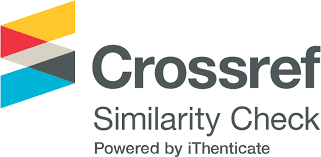The Impact of Job Autonomy, Psychological Empowerment, and Japanese-Style Management on Work Performance and Organizational Commitment
DOI:
https://doi.org/10.70301/sc1mq749Keywords:
Job autonomy, Japanese-style management, Seniority wage system, Long-life employment, Work performance, Psychological empowerment, Organizational commitment, Regression analysis, Human resource management, IT industryAbstract
Currently, Japan’s working-age population is on the decline, and the productivity of its current workforce is said to be the worst among all G7 countries. Therefore, Japanese company workers are under pressure to find ways to efficiently increase their performance. However, simply requiring workers to improve threatens their sense of belonging and allegiance. In order to combat this, there is a need for companies to find ways to increase organizational commitment. In this paper, we introduce eight hypotheses based on factors believed to affect work performance and organizational commitment (e.g., job autonomy and psychological empowerment) and unique aspects of Japanese management styles, including the seniority wage system and lifetime employment. Data from surveys were used to conduct a multiple regression analysis to test these hypotheses. As a result of these analyses, it became clear that job autonomy has an effect on work performance, psychological empowerment has effects on both organizational commitment and work performance, lifetime employment does not affect organizational commitment or work performance, and the seniority wage system has a positive effect on organizational commitment but a negative effect on work performance.
Additional Files
Published
Issue
Section
License

This work is licensed under a Creative Commons Attribution 4.0 International License.
Publication Agreement
This Publication Agreement ("Agreement") is made between the author(s) ("Author") and the SBS Journal of Applied Business Research ("Journal"). By submitting a manuscript for publication, the Author agrees to the following terms:
1. Grant of License
The Author retains full copyright ownership of the submitted and published work. The Author grants the Journal a non-exclusive license to publish, distribute, and archive the article in any format or medium, including but not limited to online and print versions.
2. Open Access and Licensing
All articles published in the Journal are fully open access under the Creative Commons Attribution 4.0 International License (CC BY 4.0). This means that:
• The work can be freely used, shared, and adapted by anyone, provided that proper attribution is given to the original Author.
• The full license terms can be found at https://creativecommons.org/licenses/by/4.0/.
• No additional restrictions are placed on the use of published articles.
3. Author Responsibilities and Warranties
The Author guarantees that:
• The submitted work is original and has not been published or submitted for publication elsewhere.
• The work does not infringe on any third-party rights, including copyright, trademark, or proprietary rights.
• All necessary permissions for copyrighted materials used in the manuscript (e.g., figures, tables) have been obtained.
• The manuscript complies with ethical research standards and does not contain any form of plagiarism or falsified data.
4. Editorial and Publication Process
• The Journal reserves the right to perform editorial revisions for clarity, formatting, and consistency while maintaining the integrity of the Author’s work.
• The publication of an article is subject to peer review, and acceptance is not guaranteed upon submission.
5. Retraction and Corrections
• The Journal follows COPE (Committee on Publication Ethics) guidelines and reserves the right to retract, correct, or withdraw an article in cases of misconduct, errors, or ethical concerns.
6. Governing Law
This Agreement is governed by the laws of Switzerland. Any disputes arising under this Agreement shall be resolved in the courts of Zurich, Switzerland.
7. Agreement Acceptance
By submitting a manuscript, the Author acknowledges and agrees to the terms outlined in this Agreement.
Editor-In-Chief
Prof. Dr. Milos Petkovic







